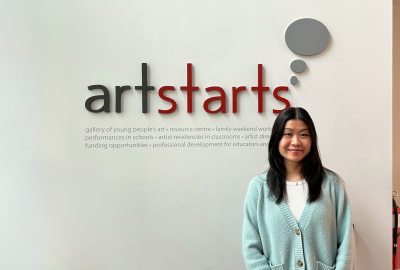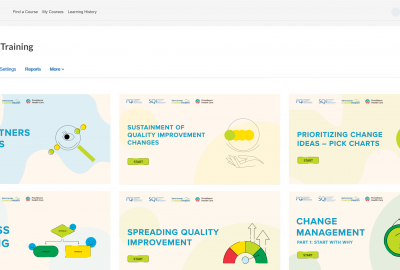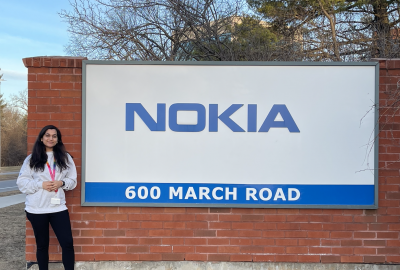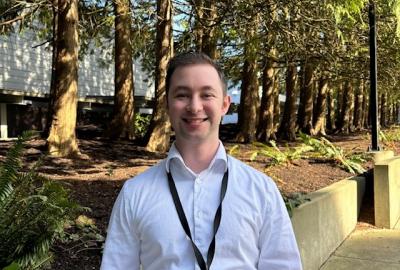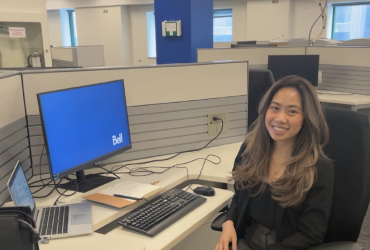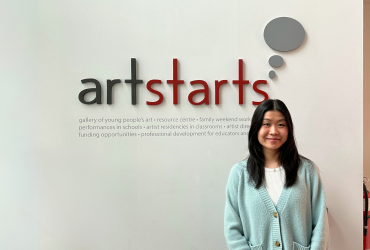Reflection
My co-op experience at Providence Health Care has been a continuous journey of growth, learning, and self-discovery. Throughout this period, I've encountered new challenges and opportunities that have shaped my skills and knowledge. This experience has not only solidified my academics but has also given me a taste of real-world applications in healthcare, which I have a strong interest to be a part of post-graduation.
One aspect that stands out is the importance of adaptability. The realm of data analytics in healthcare is constantly evolving, and my co-op has taught me to be flexible and ask questions. From diving into unfamiliar tasks to working with a diverse team, I've learned to adjust my approach and thrive in dynamic environments.
Collaboration and communication form another crucial lesson. Interacting with colleagues who come from various backgrounds and skill sets has broadened my horizons. I appreciate their advice and knowledge, as we combined our strengths to tackle complex problems, which in turn allows me to learn a great deal from them.
Equally invaluable have been the challenges I’ve faced. They've taught me patience and problem-solving. Navigating through obstacles like information gaps while tackling new tasks (i.e. Working with the Abstract Database vs Emergency Database), have allowed me to develop my understanding of the different databases available, implement creative solutions, and manage my time efficiently.
Moreover, this position seamlessly aligns with my career aspirations in health informatics and data-driven decision-making within the healthcare sector. Analyzing healthcare data and contributing to meaningful projects have reaffirmed my passion for working in healthcare and leveraging data to drive positive decision making for our clients.
Looking forward, I'm excited to continue applying the knowledge and insights gained during my co-op as I continue working at Providence Health Care for another semester. I carry with me a better understanding of how my academics translate into practice. This experience has not only enriched my resume but has also equipped me with the skills I need to contribute to my future career endeavors.
Most Valuable Aspects of This Experience
Reflecting back on this experience, a couple of aspects have stood out as particularly valuable and have greatly impacted my learning.
Firstly, I truly value the togetherness and approachability of the team. From the beginning, I felt at ease due to their friendliness and willingness to engage in open conversations. This welcoming environment allowed me to ask questions without hesitation, fostering a collaborative environment where knowledge-sharing was encouraged. In my opinion, it’s beneficial to have a team that is not only knowledgeable but also patient in problem-solving discussions. They not only guided me through challenges but also welcomed my insights and recommendations, treating my contributions as valuable input. This inclusive and supportive dynamic significantly enriched my co-op experience, encouraging me to learn, contribute, and grow within the team.
Additionally, I value the opportunity to encounter various unfamiliar tasks and challenges. This keeps my work exciting and provides a platform for honing my problem solving skills while developing new knowledge. For example, when I was entrusted with the Quarterly Report for Advance Planning Audit, it was challenging as it demanded me to quickly learn new SQL concepts, such as temp tables, and navigate between different Denodo and SQL Server databases to extract required data. Furthermore, I gained firsthand experience in navigating the Cerner reporting system, something that was entirely new to me. Amidst a tight timeline, I quickly immersed myself in comprehending these concepts and successfully delivered the requested report.
Collectively, these aspects have shaped my co-op experience. The technical skills gained, combined with personal growth and exposure to the professional world, have laid a strong foundation for my future career goals.
Connection to Academic Studies or Career Goals
My co-op experience at Providence Health Care has bridged the gap between my academic studies and my career goals. It has given me the opportunity to receive hands-on experience in applying the data analysis techniques that I’ve learned during my academics into a real-world healthcare setting. Particularly, my statistics courses served as the foundation for honing my analytical skills. While my academics involved learning programming languages such as R, SAS, Python, and C/C++, which I haven't directly employed in my current role, this knowledge has been immensely advantageous. The familiarity with coding languages has allowed me to adapt to and learn a new software like Tableau, demonstrating the transferrable nature of such skills across technological platforms.
In addition to my technical coursework, I've also recognized the significance of my business courses, which have provided me with the soft skills for effective teamwork and communication. Specifically, the business writing courses have played a pivotal role in enhancing my ability to compose clear and concise emails and documentation for my work. The skills I developed in these courses have seamlessly transitioned into my work, where I consistently use them. Whenever I am assigned a new task or requirements change, I diligently document the steps and changes and then share this documentation in the shared folder upon completion of my work. This systematic approach to documentation not only ensures transparency but also enhances my team member’s understanding of the steps I used to achieve final outputs.
Overall the transition from classroom concepts to real-world applications has really helped deepen my understanding and enhance my problem-solving skills in a new and unfamiliar environment. This practical exposure has not only solidified my understanding of data manipulation, visualization, and interpretation but has also deepened my appreciation for their vital role in the healthcare domain.
Advice for Future Students
Given my co-op experience, these are some key information that I believe would help a student in the work term.
-
Contact the Supervisor: Before your co-op begins, I recommend connecting with your supervisor. This may involve introducing yourself (if your supervisor is not the same as the hiring manager), discussing initial objectives, clarifying expectations, and reviewing project material. This early communication will help establish a strong connection with your supervisor and ensure you have a clear understanding of what is expected and answer any questions that you may have.
-
Review Relevant Materials and Self-Study: Depending on your co-op requirements, review course material or consider online courses to refresh or acquire skills that are relevant to your role. This could be concepts you learn in statistics class or a programming language/software. Prep ahead of your start date to be ready for new tasks.
-
Preplan Logistical Setup: Discuss the company's location and remote work with your supervisor to plan your commute or setup. Being punctual and organized on your first day sets a positive tone for your co-op experience. Plan your first day for a seamless start, be it in the office or remote.
-
Technical Setup: When you have your devices, ensure you have the necessary software and tools ready to conduct your role. If there is anything missing or you need help installing software or setting up, contact your supervisor as soon as possible so they can provide you the help you need.
-
Plan out Personal Goals and Objectives: At the end of your work you will be required to look back and reflect on what you hoped to achieve during your co-op. So it is important to set personal goals that align with your role and your career aspirations. Let your supervisor know what you hope to achieve in your co-op, so they can provide any resources you may need to achieve them.
-
Ask Questions: Don’t be afraid to ask your supervisor or colleagues questions; they are there to support you and your learning. Seeking clarification sooner rather than later is advisable, as it’ll make it easier for you to complete your tasks and minimizes the potential of misunderstandings.

